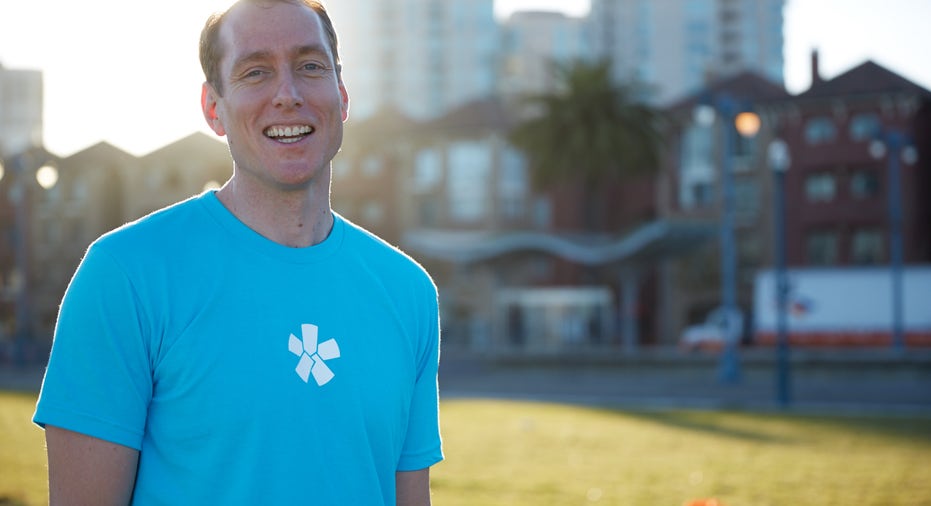Inspired by P90X’s Tony Horton, Fitmob Aims to Disrupt Gym Industry

For those needing more than a DVD, the maker of P90X is working with a new startup that aims to connect underworked personal trainers with gym rats for as little as $5 per workout.
On Thursday, P90X founder Tony Horton and serial entrepreneur Raj Kapoor debuted fitmob, a new startup looking to disrupt the $75 billion global gym industry with its low-cost, tech-driven workout solution. It has raised $9.75 million in equity and debt funding from Mayfield Fund, Silicon Valley Bank and individual investors.
Kapoor, an investor in peer-to-peer ride sharing startup Lyft, compares fitmob to, of all things, Lyft competitor Uber. Fitmob’s model is based on the assumption that there are both underutilized workout spaces, and underworked personal trainers looking to bulk up their client base.
“There are 250,000 certified trainers in America making $29,000 a year who are only 30% utilized,” says Kapoor. “Just like Uber, which found that black car drivers were just sitting around, [fitmob] is giving trainers a platform to create businesses.”
How fitmob’s Model Works
Instead of opening a chain of gyms, fitmob’s exercise ethos is similar to P90X, which is used at home.
The workouts focus on body-weight exercises that can be completed with bands, mats and partners. Classes are currently held in public parks, fitmob’s office and rented independent workout studios. When the company expands outside of San Francisco, Kapoor says it will likely look to spaces found in community centers and schools. This will prove especially important in cities like New York and Boston, where weather conditions don’t permit year-round outdoor classes.
Using fitmob’s app, community members reserve a workout taught by a certified trainer handpicked by fitmob. Classes are capped between 20 and 60 people, depending on the space. Kapoor says the San Francisco classes are currently taught by six trainers, culled from an applicant pool of more than 400.
Classes start at $15 per workout, and users that attend two weekly classes are charged $10 per class. Three or more workouts per week will cost only $5 apiece – a price which Kapoor hopes will get fitmob members to become more active and involved in the community.
Users who don’t cancel reservations more than 12 hours in advance will pay a $5 “flake fee.” Kapoor says a portion of the penalty will go to charities that help underserved communities get in shape.
When it comes to the actual workout, Kapoor says fitmob’s focus is on creating 45- to 60-minute sessions that are high-energy and fun. Fitmob provides trainers with bands, mats, disco lights and portable speakers, with few other instructions other than incorporating strength and cardio.
“What we want to do is enable these leaders to come up with their own workouts – as long as they make it fun,” says Kapoor. He says Horton, who remains full-time at P90X but serves as a strategic advisor at fitmob, is involved in helping the trainers come up with fun, high-energy workouts.
Fitmob’s Future
Kapoor says the company’s beta phase has been a success, with many workout classes hitting full capacity. Now that fitmob is launched to the public, the CEO says the startup will remain focused on proving the model in San Francisco before expanding.
“My guess is at this time we’ll go down the coast to LA, which has a ripe market with many outdoor venues,” says Kapoor, who says New York City is also a definite target.
While fitness crazes like SoulCycle and CrossFit are in high demand across the U.S., Kapoor is confident that his startup can disrupt the market.
“We have no direct competition today … Our number one competitor is inactivity,” says Kapoor.



















